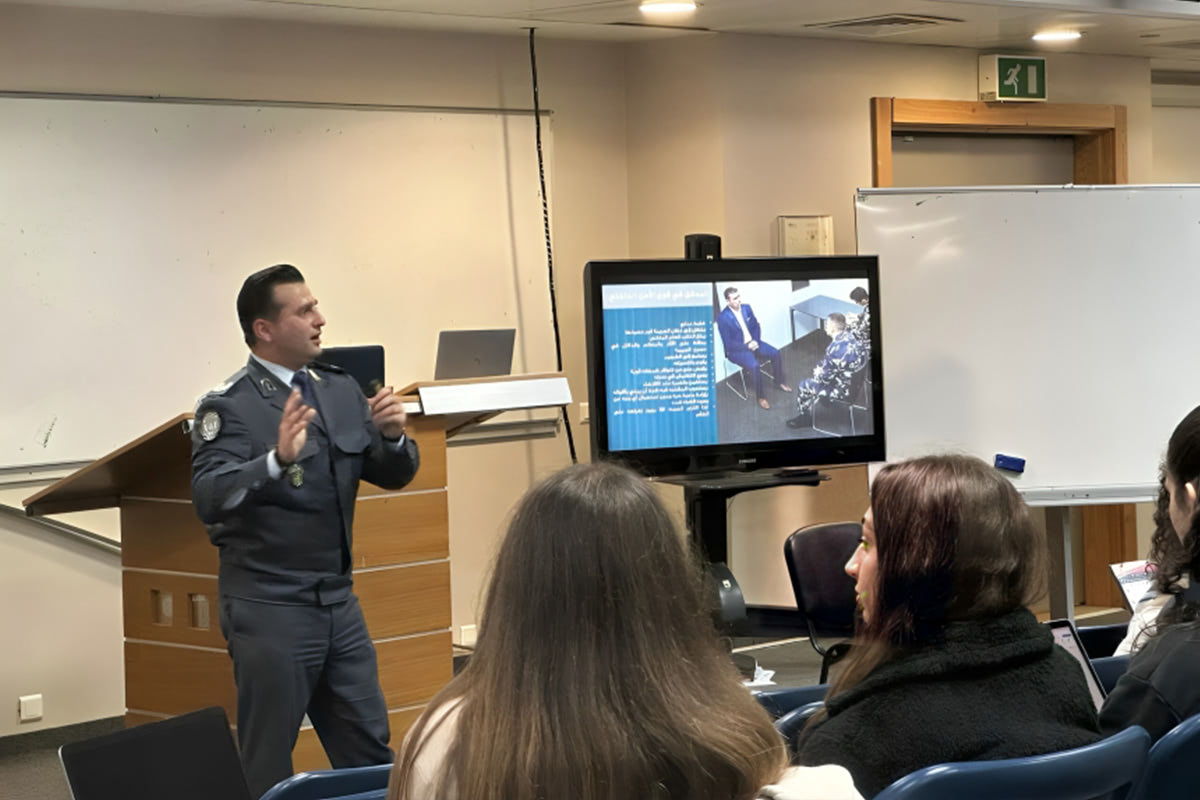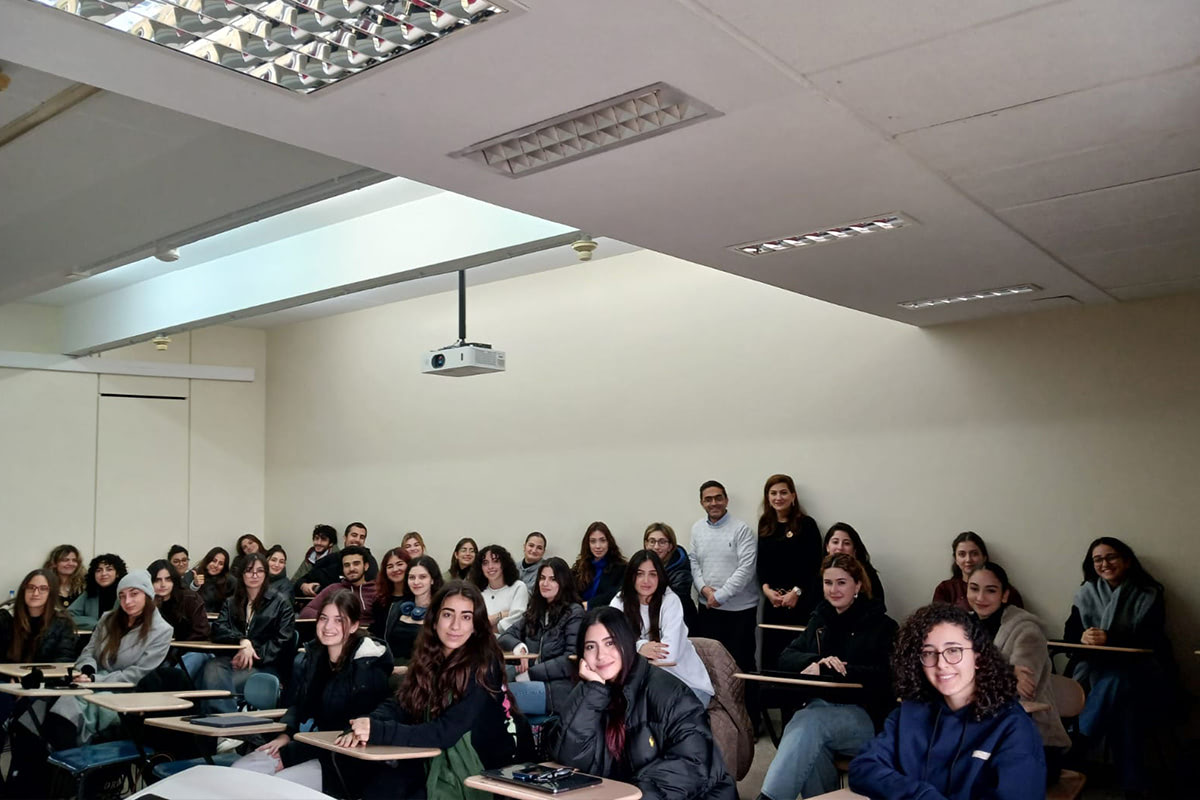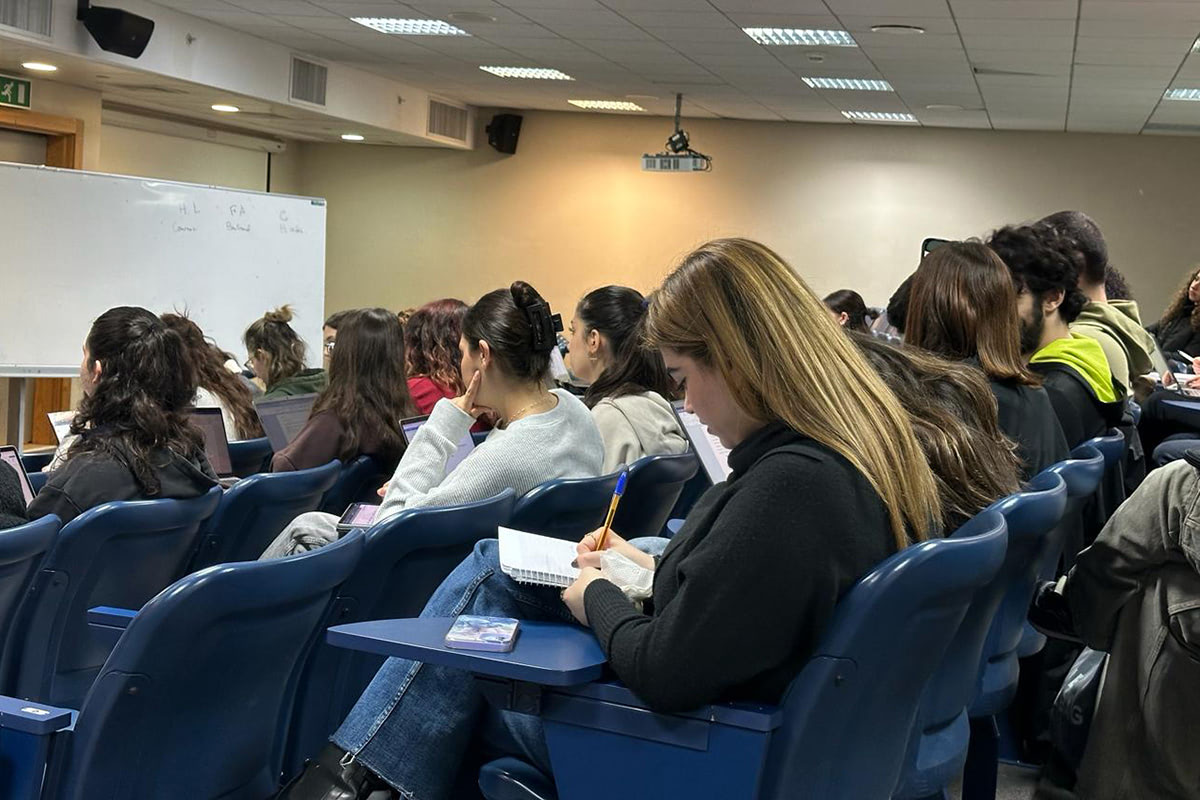Beyond the Crime Scene: Unveiling Forensic Psychology at LAU
Students in the Psychology program learn firsthand about the practical applications of forensic psychology and different career options in clinical practice.
On March 11, 2021, when the body of a 38-year-old woman was found at a farm stay in Sahl Ad-Damour, Lebanon, the Internal Security Forces’ (ISF) suspicions initially fell on the husband because of his strong build.
But further investigation and the behavioral cues of two other suspects under interrogation led the ISF to the perpetrator, who eventually confessed to the crime.
This case was among those presented by ISF Major Rawad Tohme to undergraduate psychology students in a Forensic Psychology session. Based on his experience as Head of Damour Police Station and the international advanced training he received on investigation techniques and crime scene interventions, Major Tohme was invited to offer firsthand accounts and case studies demonstrating the practical applications of forensic psychology in Lebanon.
Forensic psychology is a specialized field that involves the application of psychological principles and theories to understand criminal behavior and provide expert testimony in legal proceedings.
Taught by Assistant Professor of Practice Toni Sawma, this Topic course under LAU’s Psychology program explores the relationship between law and psychology, which includes criminal profiling, eyewitness testimony and mental health assessments within legal contexts.
“The course is enriched with case studies and international guidelines, such as police investigation techniques, interview protocols for children witnesses and victims of abuse, and so on,” said Dr. Sawma. “It aims to prepare the students for the market and the different settings of clinical practice.”
Students gain insights into human behavior within law enforcement, criminal justice and the judicial system, while also learning about psychological research methods and effective data interpretation. In areas other than law, the program offers an exploration of the study and analysis of human thoughts and behaviors, focusing on the individual as a whole.
During the session, Major Tohme provided a comprehensive overview of the ISF’s responsibilities in analyzing criminal behavior and responding to different crime scenarios.
In another session, the class received Lea Sawaya Wassaf, clinical psychologist and sworn psychology expert at the Lebanese courts, who shared her experience in handling complex legal case studies and instances where judges involve psychologists, such as in drug-related cases and assessments, and adoption processes, among others.
Both presentations underscored the vital role of psychology in informing judicial decisions and safeguarding the welfare of individuals within the legal system.
When asked about the benefits these guest speakers bring to the students, Dr. Sawma noted that “they get to learn from someone in the field who can offer them tips on how to put their skills into practical use. They also learn that their role as psychologists is important and that they can be an added value to police officers, detectors, judges, and lawyers, among others.”
Equipped with this knowledge, students emerge from the psychology program with the skills to pursue a variety of career paths, ranging from clinical psychology which focuses on therapy and assessments, and counseling psychology, to forensic psychology, which deals with legal contexts, he added.
For second-year psychology student Lenora Yaghi, “the insights gained from [Major Tohme’s] session are very important for someone studying psychology,” she said, “because understanding the responsibilities and practices of law enforcement provides crucial context for analyzing criminal behavior and contributing effectively to legal proceedings.”
Insights into the collaboration between law enforcement and other fields revealed the interdisciplinary nature of forensic psychology and the importance of integrating diverse perspectives in analysis and evaluation, she added.
Third-year psychology student Josee Geagea agreed. “Seeing theoretical concepts applied in real-world situations in my country helped me better understand how forensic psychology works,” she said. “Learning about the challenges and successes within the legal system boosted my confidence and purpose in my role as a future forensic psychologist.”
Down the line, Dr. Sawma plans to further enhance the course through field trips and additional guest speaker engagements. He hopes that the program will continue to empower students with the knowledge and skills needed to contribute to the field of forensic psychology.
“I believe that students should benefit from all the possible options that will make their learning experience engaging,” he said. “I always tell my students that they are my future colleagues, so it is my job to show them all the potential and possible cases that could happen in their practice.”


